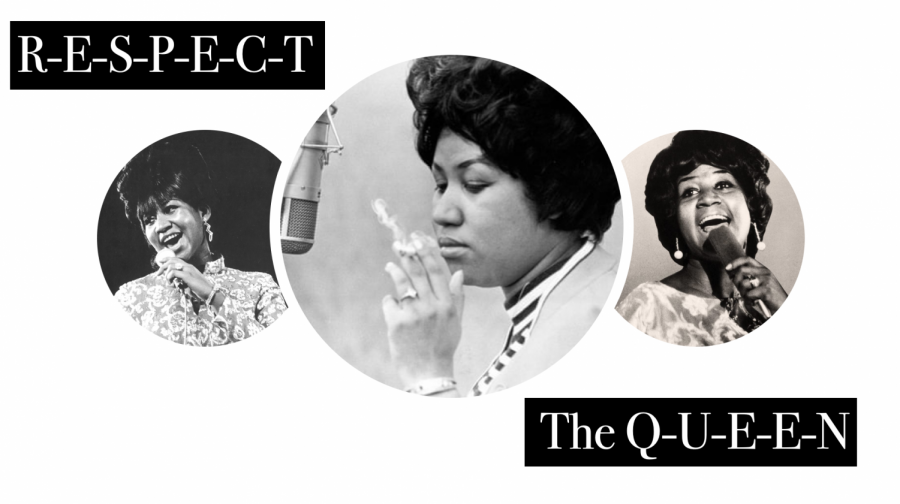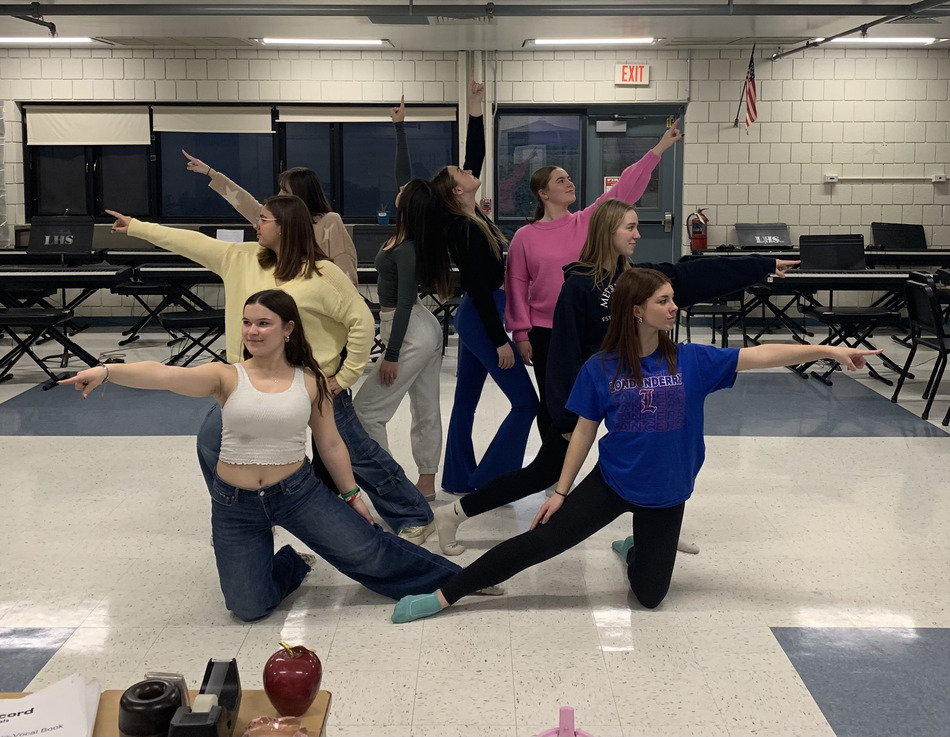The kingdom floods into the halls of a great castle. A castle with walls that tower so high they scrape the clouds. Through the steel gate peasants and squires, nobles and jesters all rush to the courtyard.
In a canopy above the crowd a voice caws. Calling for quiet, the crowd dims. As the doors slam open the crowd awaits in suspense. A strong woman appears from the darkness of the doorway. As she steps out, the mass instantaneously erupts. They’re celebrating the coronation of a queen.
Nay, the coronation of the Queen: Aretha Franklin.
Arguably Franklin’s greatest work, “Respect” is the perfect blend of sass, soul and symphonics. The song has a feminist edge to it that gives it undertones of strength and meaning. On top of this, the fed-up nature heard in the vocals gives the song that much more character.
With Aretha Franklin singing any song there’s going to be soul and in this bop it’s ubiquitous. Franklin’s voice alone is just knee-trembling astonishing and powerful, but when you give one of the catchiest hooks ever written to sing, the whole thing is transcended to another level. Right when she starts spelling “R-E-S-P-E-C-T” it’s nearly impossible not to get some goosebumps and want to empower every woman in your life.
“(You Make Me Feel Like) A Natural Woman” is a Franklin aubade that is absolutely unforgettable. Toting some of the most evocative verses in soul music and arguably the catchiest chorus Franklin has ever produced, the track is yet another one to add to the iconography of a legend.
The song skips an intro and transitions straight into the first verse. The verse progresses from a somber start in which Franklin sings about the loneliness and hardships of her time before the individual the song is about, to romantic poetry articulating how wonderful her life is with them. All of it of course sets up the “You make me feel like a natural woman” chorus, capping off the stupendous track with a falling yet powerful chorus.
“Do Right Woman, Do Right Man” is a raw piano ballad that provides a social commentary on treatment of women in society. (Leave it up to Aretha Franklin to pull that off.) The entire essence of the song is calling on the masses to do right by women but singing it in a very personal rendition.
The lyrics, “She’s not just a plaything / She’s flesh and blood just like her man” set the seriousness of the track but are sung with the soulful and restrained vocals of Franklin giving it an almost melancholy sound. A sound that is absolutely perfect for the topic being discussed, channeling the feeling many women in society had (and still have) about not being seen as equal or just simply being treated right.
“Who’s Zoomin’ Who?” could honestly be a Madonna track. Like this thing is way out there in comparison to other Franklin works. But after a listen you’ll be glad that it’s Aretha Franklin behind it and not Madonna because this song is great.
The track opts for a more synthesized instrumentation, which acts as the main factor behind its foreignness. What didn’t change in this track, are the Franklin vocals. Her range is on full display, managing to belt out flaring high notes and sustaining solid base vocals. When the two are put together, created is a concoction of 80’s MTV style techno and a contrasting raw vocal power of Franklin.
“Think” is soulful, sassy sing-along that is all about sticking it to the patriarchy and being proud of womanhood. The verses are finger-wagging, the choruses are immaculate and the vocals are simply peak Aretha Franklin.
With the song’s opening verses give you all you need to know about what’s to come. The song has two choruses, both are great, but each have a different energy. The first chorus, “You better think / Think what you’re doin’ to me,” is a biting callout towards men and their mistreatment of women in society. The second chorus, “Freedom,” refrains over and over, acting as a celebratory section of the song and a healthy break from the caustic lyrical takedowns strewn throughout the song.
After all of it, in 2018 at the age of 76 Aretha Franklin passed away from liver cancer. The pop-culture world was in uproar, remembering the lives she touched with her music and in fact how great that music was. It was a global realization that we had lost an icon.
A legend. A woman. A queen.
But rather than focusing on the loss of all of this we should focus on what got her there.
The fact that she dared herself to dream the dreams she could’ve feared. And then to do chase the fear and conquer it.
So, to Aretha Franklin for all the wonderful things you did and all the wonderful things that are happening now that you inspired,
Thank you.











